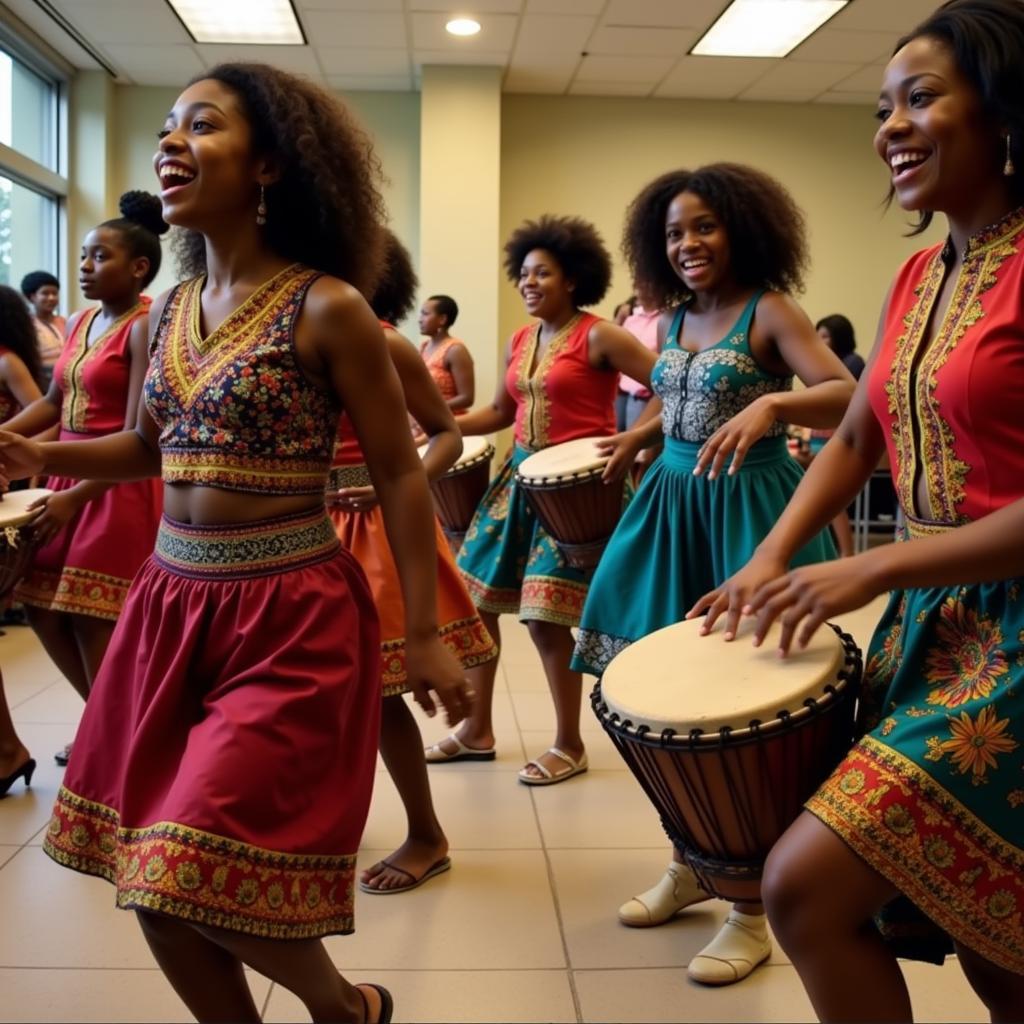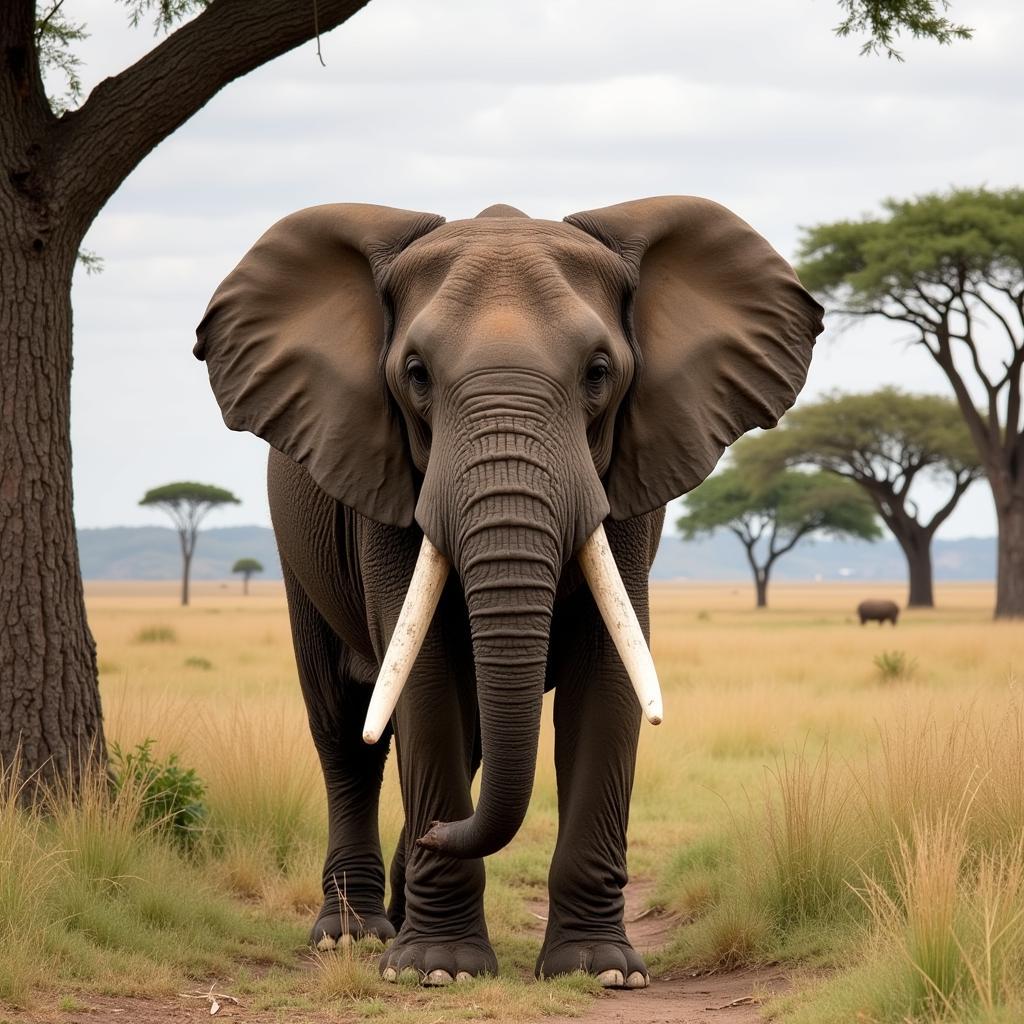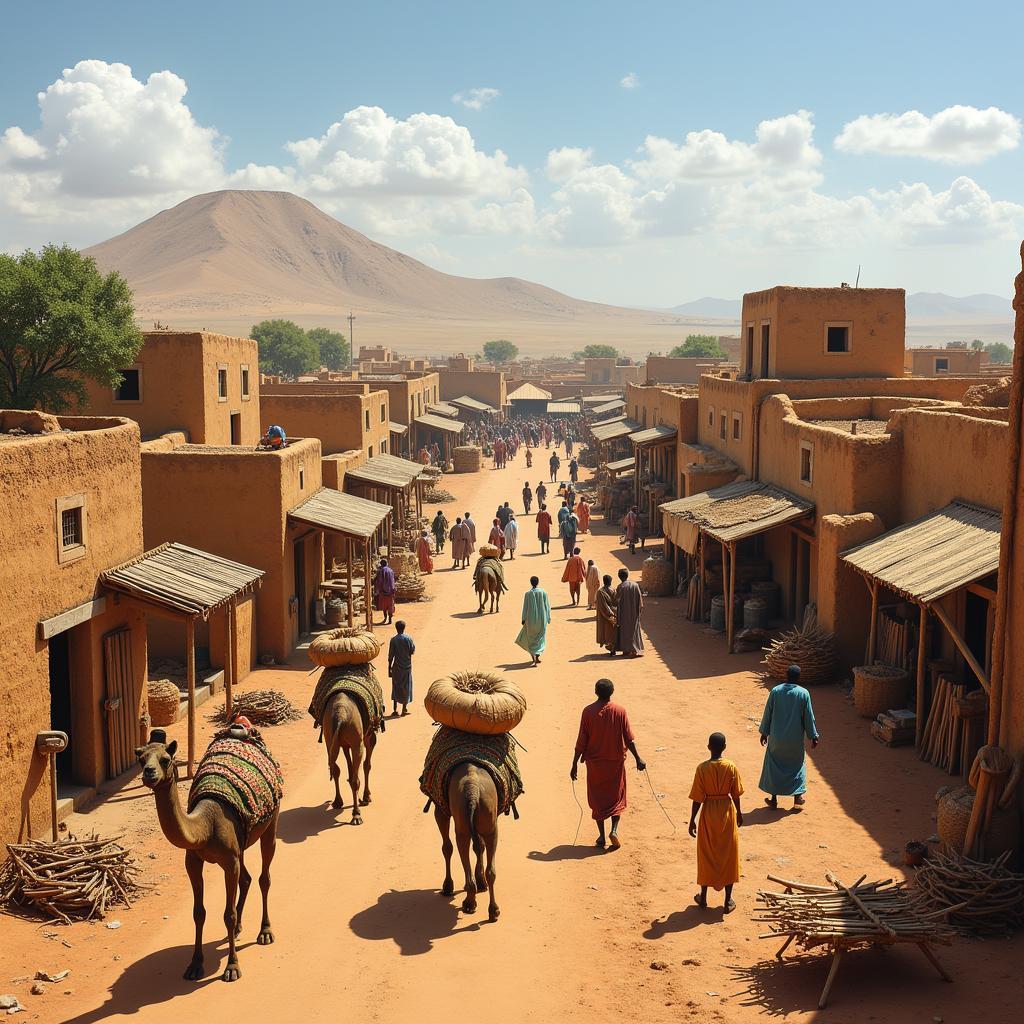A Journey into the Heart of African Jungle Tribes
The term “African Jungle Tribes” evokes a sense of mystery and wonder, painting a picture of ancient cultures living in harmony with nature. For centuries, the dense rainforests and vast savannas of Africa have been home to a diverse array of indigenous communities, each with unique traditions and a deep-rooted connection to their environment. This exploration delves into the fascinating world of these tribes, shedding light on their ways of life, challenges, and their enduring legacy.
The Diverse Tapestry of African Jungle Tribes
It’s important to note that the term “tribe” itself can be a bit misleading, often oversimplifying the complex social structures of these groups. Many communities identified as “tribes” are actually comprised of diverse clans, lineages, and social groups, each with their own distinct identities and customs.
While each group holds its own unique characteristics, there are some common threads that tie them together. Their lives are intricately woven into the fabric of their natural surroundings. The jungle, far from being a mere backdrop, is their provider, their pharmacy, and their spiritual anchor.
Lifestyles and Traditions: Adapting to the Jungle Rhythm
The daily rhythms of jungle tribes are often dictated by the cycles of nature. Hunting, gathering, fishing, and agriculture form the backbone of their subsistence strategies. They’ve developed an intimate knowledge of the forest’s bounty, understanding the seasons, the plants, and the animals with an expertise unmatched by outsiders.
For many tribes, the rainforest is more than just a source of sustenance; it’s a living library of medicinal plants. Traditional healers, often revered figures within their communities, possess a wealth of knowledge about the healing properties of various herbs, roots, and bark. These remedies are used to treat a wide range of ailments, from common colds to more serious illnesses.
Many jungle tribes maintain rich cultural traditions, often expressed through music, dance, storytelling, and elaborate rituals. These art forms serve as a powerful means of passing down knowledge, beliefs, and values from one generation to the next.
Challenges and Change: Navigating a Modern World
Sadly, the traditional ways of life for many African jungle tribes are facing unprecedented challenges. Deforestation, driven by logging, mining, and agricultural expansion, is rapidly shrinking their ancestral lands. This encroachment not only displaces communities but also disrupts delicate ecosystems and threatens the very survival of their cultural heritage.
Further compounding these issues is the pressure to assimilate into broader national identities. Governments and organizations often promote integration into mainstream society, but this can come at the cost of eroding cultural diversity and traditional knowledge.
Preserving a Vital Heritage: Recognizing the Value of Indigenous Knowledge
The future of African jungle tribes hangs in the balance. However, there is a growing recognition of the importance of preserving their unique cultures and the invaluable knowledge they hold.
Efforts are underway to support sustainable livelihoods that allow tribes to thrive while protecting their environment. Moreover, there’s a surge in initiatives documenting and preserving their languages, oral histories, and artistic traditions. By acknowledging the value of indigenous knowledge systems and empowering these communities to be stewards of their own destinies, we can ensure that their rich tapestry of cultures continues to thrive for generations to come.
FAQ
1. What are some of the most well-known African jungle tribes?
While the term “tribe” isn’t always accurate, some widely recognized groups often associated with jungle environments include the Baka of Cameroon, the Aka and Mbuti of the Congo Basin, and the San (Bushmen) of Southern Africa, known for their ancient connection to the Kalahari Desert.
2. How do climate change and deforestation impact these communities?
These factors directly threaten their food security, water sources, and access to traditional medicines. Displacement and forced migration also lead to cultural disruption and loss of traditional knowledge.
3. How can I learn more about and support African jungle tribes?
Consider supporting organizations working directly with these communities on issues like land rights, cultural preservation, and sustainable development. Research and raise awareness about their unique challenges and contribute to efforts that amplify their voices.
4. Are there opportunities to experience the cultures of these tribes respectfully?
Yes, but it’s crucial to approach such experiences with sensitivity and a commitment to ethical engagement. Seek out community-based tourism initiatives that prioritize cultural exchange, respect local customs, and ensure that the economic benefits directly benefit the tribes involved.
Exploring Further: A Deeper Dive into African Cultures
To continue your journey into the heart of African cultures, delve into the vibrant world of African choral music songs. For a comprehensive understanding of the continent’s diverse heritage, explore our resource on African culture and traditions pdf.
Remember, understanding and appreciating the “african jungle tribes” requires moving beyond stereotypes and embracing the complexity and richness of their lived experiences. Let’s work together to ensure that their ancient wisdom and profound connection to nature continue to inspire and inform the world.




